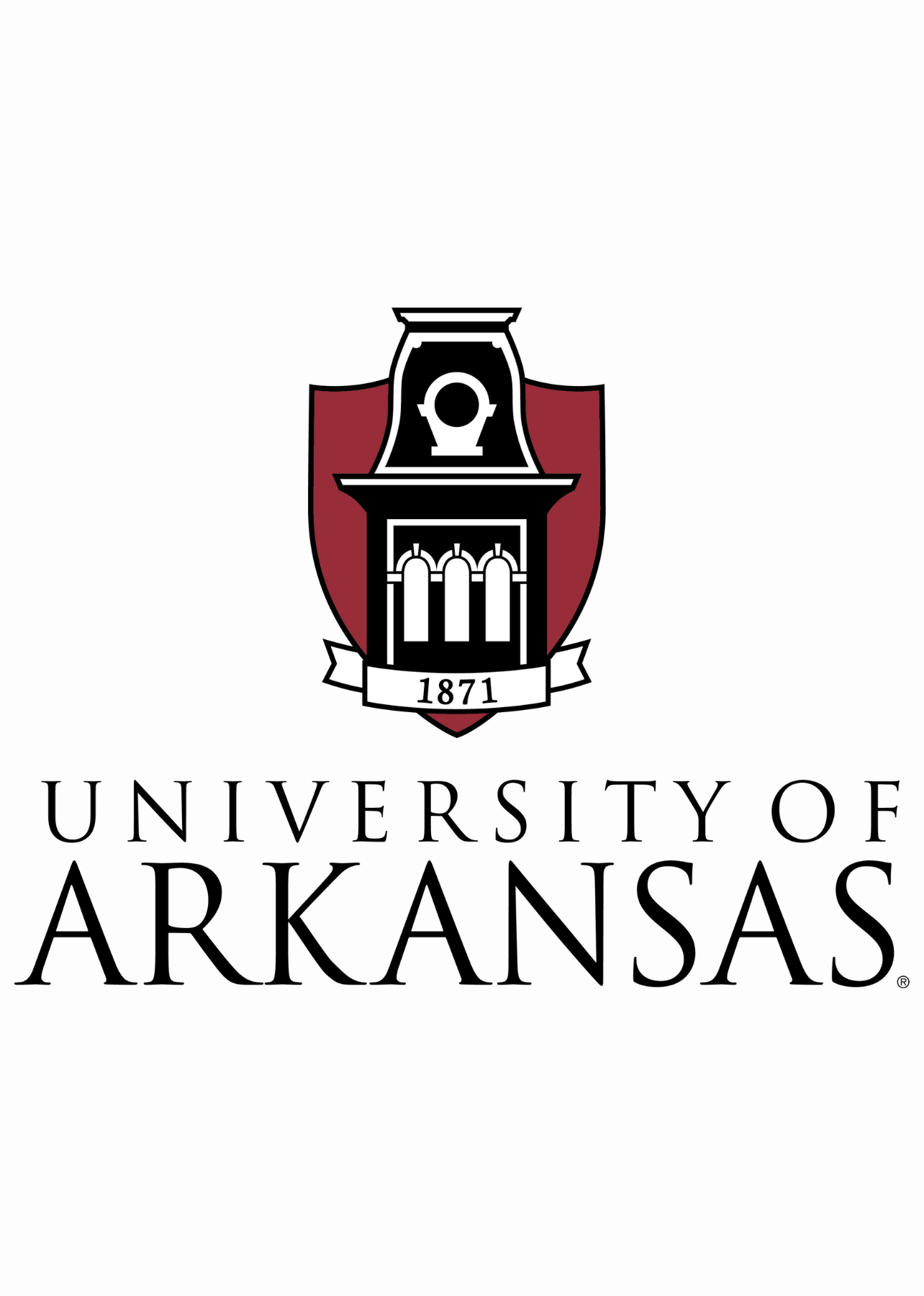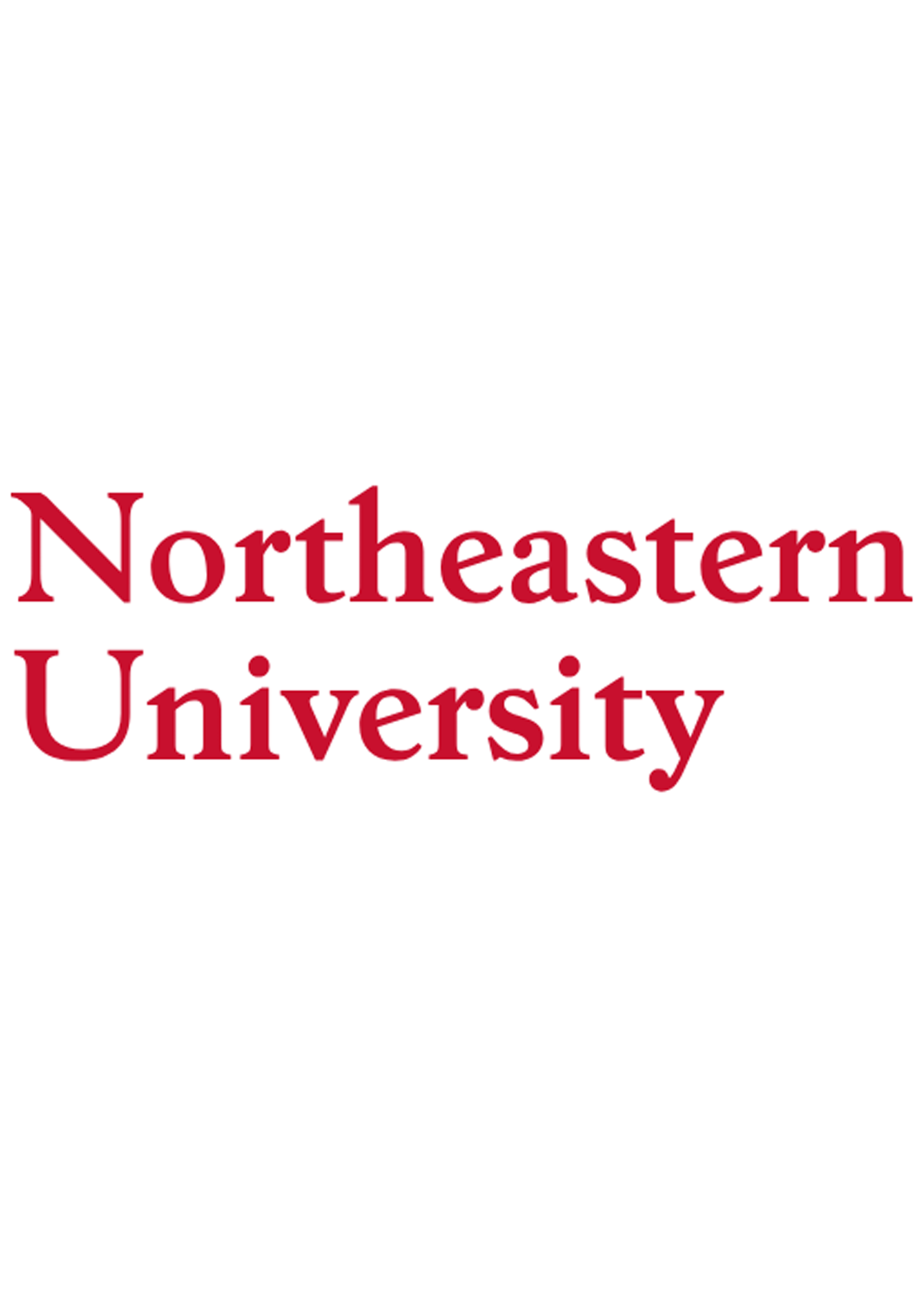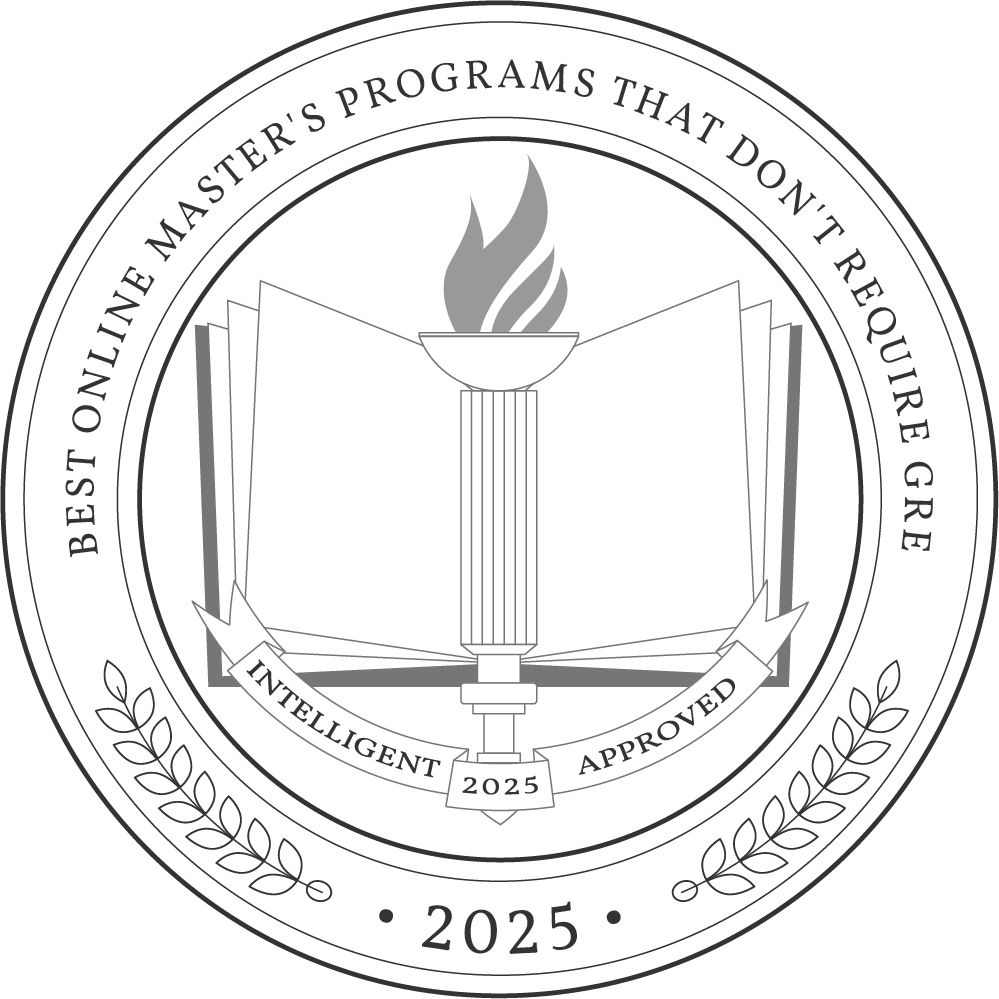Applying to an online master’s program can be an intensive process that includes completing prerequisite courses, writing essays, requesting recommendations, and participating in interviews. One way to make the process more streamlined is by considering online master’s programs that don’t require the GRE or Graduate Record Examination.
While many graduate programs require this standardized test, which evaluates students’ abilities in Verbal Reasoning, Quantitative Reasoning, and Analytical Writing, there are also plenty of high-quality online master’s programs that have eliminated GRE requirements or made submitting scores optional. This list compiles the best online master’s programs with no GRE requirements and explores the pros and cons of applying to these types of online master’s programs. It also includes guidance from Blanca Villagomez, a program counselor and coordinator at the University of California-Irvine, on when to submit GRE scores to test-optional master’s programs.
How to Get Into an Online Master’s Program Without Taking the GRE
Online master’s programs with no GRE requirements have developed other ways of determining whether applicants are a good fit for the program. Therefore, the first step to getting admitted to an online master’s program (no GRE) is to carefully review the program’s admissions and eligibility requirements to ensure you meet the program’s basic admissions standards.
Students should review academic requirements, including whether they must have a specific undergraduate degree, prerequisite coursework, or a minimum undergraduate GPA. If a student’s undergraduate academic record doesn’t meet minimum requirements or doesn’t reflect their current academic capabilities, completing additional undergraduate courses or a certificate program can demonstrate an ability for improvement.
Many online master’s programs that don’t require GRE scores also focus on applicants’ professional experiences to determine if they’re well-suited for the program. Applicants should submit a polished resume that reflects their professional skills and achievements and demonstrates that they’re ready to pursue advanced study in their career field. They can also use their personal statement to detail why they are pursuing an online master’s degree and what qualities make them a good fit for the program.
Letters of recommendation also carry more weight when applying to online master’s programs with no GRE requirements. Students should request recommendations from current or former employers, colleagues, and professors who can speak to their specific strengths and preparedness for graduate-level study.
Pros and cons of applying to an online master’s program with no GRE requirements
One of the benefits of applying to an online master’s program with no GRE requirements is that it eliminates a step in the grad school application process. Preparing for and taking the GRE requires time and money that students may not have. The GRE registration fee is $220, and there are additional fees if students need to reschedule their test dates. GRE prep programs can cost hundreds or even thousands of dollars. Applying to non-GRE programs eliminates this barrier to entry to graduate education.
Additionally, online master’s programs that don’t require the GRE may take a more holistic approach to admissions, meaning students can demonstrate their abilities and preparedness for graduate study in a variety of ways. This can include having extensive work experience, a strong undergraduate academic record, positive recommendations, and a well-written essay.
The downside of applying to these types of programs is that applicants lose an opportunity to demonstrate their academic strengths. This may not be an issue for students who have a good undergraduate academic record. However, students who didn’t perform well in their bachelor’s may benefit from being able to submit a high GRE score. It also limits master’s program options for students, as there are still many programs that require GRE scores.
Why Trust Us
The Intelligent.com Higher Education Team is dedicated to providing students with independent, equitable school and program rankings and well-researched resources. Our expert-driven articles cover topics related to online colleges and programs, paying for school, and career outlooks. We use data from the U.S. Department of Education’s College Scorecard, the National Center for Education Statistics, and other reputable educational and professional organizations. Our academic advisory team reviews content and verifies accuracy throughout the year for the most current information. Partnerships do not influence rankings or editorial decisions.
- Analyzed over 2,000 national, accredited, and nonprofit colleges and universities
- 800+ rankings pages are reviewed and updated yearly
- Content is informed by reputable sources, surveys, and interviews with academic advisors and other experts
- Over 100 data points are reviewed for accuracy and quality throughout the year, including sources
How we rank schools
Our list features the best online Master’s Without Taking the GRE degree programs at top colleges nationwide. Each school featured is a nonprofit, accredited institution — either public or private — with a high standard of academic quality for post-secondary institutions.
We evaluated each school’s program on tuition costs, admission, retention and graduation rates, faculty, reputation, and the student resources provided for online students. We collected data from trusted sources like the National Center for Education Statistics, individual school and program websites, school admissions counselors, and other data sources. Then, we calculated the Intelligent Score on a scale of 0 to 100 based on the following criterion:
Academic Quality:
- Admission rate versus enrollment rate
- Retention rate of students who return after year one
- Accreditation status (regional and programmatic)
- Nonprofit status, both private and public institutions
Graduation Rate
- Overall graduation rate
- Total number of currently enrolled students, including diversity metrics
- Student-to-faculty ratio
Cost and ROI
- In-state and out-of-state per-credit tuition rates and fees
- Required credits to graduate
- Earning potential after graduation
- Availability of federal student loans, scholarships, and other financial aid options
Student Resources
- Available student services for online-only and hybrid programs
- On-campus amenities like tutoring centers and the number of libraries
Read more about our ranking methodology.
Best 49 Online Master’s Programs That Don’t Require the GRE
FiltersInstitution Type
Status
- Intelligent Score
- Alphabetically By University Name
- Acceptance Rate
- Enrollment
- In-state Graduate Tuition
- Out-of-state Graduate Tuition
- In-state Undergraduate Tuition
- Out-of-state Undergraduate Tuition

Ohio University
Intelligent Score: 97.98In-state: $27,574
Out-of-state: $38,254
In-state: $18,138
Out-of-state: $18,138
SAT: 1070-1290
ACT: 22-27
Resident: $505 - $1,032
Non-Resident: $624 - $1,051
Online
Higher Learning Commission
30-48

Western Governors University
Intelligent Score: 97.96In-state: $6,380
Out-of-state: $6,380
In-state: $7,500
Out-of-state: $7,500
SAT: N/A
ACT: N/A
$441 - $528
Online
Northwest Commission on Colleges and Universities
31-49

Southern New Hampshire University
Intelligent Score: 97.60In-state: $9,600
Out-of-state: $9,600
In-state: $18,810
Out-of-state: $18,810
SAT: N/A
ACT: N/A
$637
Online
New England Commission of Higher Education
30-36

CSU Global
Intelligent Score: 95.72In-state: $9,426
Out-of-state: $28,147
In-state: $10,520
Out-of-state: $10,520
SAT: 1070-1280
ACT: 23-29
$675
Online
Higher Learning Commission
30-36

West Texas A&M University
Intelligent Score: 95.71In-state: $5,748
Out-of-state: $7,195
In-state: $4,968
Out-of-state: $4,968
SAT: 920-1130
ACT: 18-23
Resident: $283
Non-Resident: $743
Online
Southern Association of Colleges and Schools
36-56

Ball State University
Intelligent Score: 95.50In-state: $9,482
Out-of-state: $26,470
In-state: $9,328
Out-of-state: $9,328
SAT: N/A
ACT: N/A
Resident: $464
Non-Resident: $696
Online
Higher Learning Commission
30-36

Florida International University
Intelligent Score: 95.05In-state: $4,721
Out-of-state: $16,529
In-state: $8,912
Out-of-state: $8,912
SAT: 1110-1260
ACT: 23-29
$590 - $1,000
Online
Southern Association of Colleges and Schools
30-42

University of Arkansas
Intelligent Score: 94.48In-state: $7,568
Out-of-state: $24,056
In-state: $7,752
Out-of-state: $7,752
SAT: 1090-1280
ACT: 23-29
$303 - $437
Online
Higher Learning Commission
30-39

Northeastern University
Intelligent Score: 92.90In-state: $54,360
Out-of-state: $54,360
In-state: $25,264
Out-of-state: $25,264
SAT: 1410-1540
ACT: 33-35
$800 - $900
Online
New England Commission of Higher Education
30-45

Liberty University
Intelligent Score: 92.82In-state: $14,791
Out-of-state: $14,791
In-state: $7,935
Out-of-state: $7,935
SAT: 1040-1250
ACT: 21-29
$565
Online
Southern Association of Colleges and Schools
30-36

Johnson & Wales University
Intelligent Score: 92.49In-state: $34,376
Out-of-state: $34,376
In-state: $14,148
Out-of-state: $14,148
SAT: N/A
ACT: N/A
$842
Online
New England Commission of Higher Education
30-36

Concordia University Wisconsin
Intelligent Score: 91.59In-state: $32,660
Out-of-state: $32,660
In-state: $9,090
Out-of-state: $9,090
SAT: 990-1180
ACT: 19-25
$699 - $909
Online
Higher Learning Commission
30-63

University of Wisconsin - Platteville
Intelligent Score: 90.94In-state: $9,273
Out-of-state: $37,161
In-state: $10,728
Out-of-state: $10,728
SAT: 1260-1460
ACT: 27-32
$725 - $850
Online
Higher Learning Commission
30-36

Concordia University Ann Arbor
Intelligent Score: 90.47In-state: $32,660
Out-of-state: $32,660
In-state: $9,090
Out-of-state: $9,090
SAT: 990-1180
ACT: 19-25
$699 - $740
Online
Higher Learning Commission
30-63

Colorado State University
Intelligent Score: 90.29In-state: $9,426
Out-of-state: $28,147
In-state: $10,520
Out-of-state: $10,520
SAT: 1070-1280
ACT: 23-29
$586 - $800
Online
Higher Learning Commission
30-33

Webster University
Intelligent Score: 89.81In-state: $28,500
Out-of-state: $28,500
In-state: $13,500
Out-of-state: $13,500
SAT: 1078-1260
ACT: 20-27
$690 - $752
Online, On-Campus
Higher Learning Commission
33-36

Concordia University St. Paul
Intelligent Score: 89.44In-state: $32,660
Out-of-state: $32,660
In-state: $9,090
Out-of-state: $9,090
SAT: 990-1180
ACT: 19-25
$475
Online
Higher Learning Commission
30-36

Ottawa University
Intelligent Score: 89.14In-state: $29,980
Out-of-state: $29,980
In-state: $15,576
Out-of-state: $15,576
SAT: 750-990
ACT: 18-22
$635 - $649
Online, On-Campus
Higher Learning Commission
30-36
How we rank schools
This list features some of the best online master’s programs with no GRE requirements at top colleges nationwide. Each school featured is a nonprofit, accredited institution — either public or private — with a high standard of academic quality for postsecondary education.
We evaluated each school’s program on admission, retention, and graduation rates as well as tuition costs, faculty, reputation, and the resources provided for online students. Then, we calculated the Intelligent Score on a scale of 0 to 100. Read more about our ranking methodology.
Next, we compared this comprehensive list of online master’s programs with no GRE requirements to a list of aggregated college rankings from reputable publications like U.S. News & World Report, among others, to simplify a student’s college search. We pored through these rankings so students don’t have to.
Types of College Admissions Testing Policies
When researching online master’s programs, students will likely encounter different standardized testing policies. At the graduate level, such policies may vary by program even within the same institution. For the most accurate information about standardized testing policies for a particular school or program, speak to an admissions counselor at the institution.
The most common college admissions testing policies include:
- Required: All applicants to the school or program must submit GRE scores as part of their application. There may also be a minimum score requirement for admission or consideration for scholarships or course placement.
- Test-Optional: These schools will consider GRE scores if students submit them as part of their application, but they’re not required. While a lack of GRE scores won’t impact a student’s admission decision, some test-optional schools may consider test scores when it comes to awarding merit-based financial aid, like scholarships. Some schools use the term ‘test-flexible’ to describe similar policies.
- Test-Blind: Also known as ‘test-free’ schools or programs, these institutions don’t consider GRE test scores at all, even if students submit them. Instead, admissions committees evaluate applicants based on their undergraduate academic records, work experience, letters of recommendation, essays, and interviews
Should you submit GRE scores to test-optional schools?
Applying to an online master’s program that has a test-optional policy means the decision about whether to submit GRE scores is up to you. In this case, Villagomez says there are a few factors that can help students determine whether submitting GRE scores is beneficial or not.
For students who’ve taken the GRE, “If their scores complement and enhance the student’s overall application, I recommend that the student consider submitting them,” Villagomez says.
While a test-optional school or program likely won’t have a minimum threshold for GRE scores, students can use averages to determine if their scores are strong enough to enhance their application. The average score for the Verbal and Quantitative Reasoning portions of the GRE is around 150 (on a scale of 130-170), and the average Analytical Writing score is 3.5 (on a 0-6 scale). Scores at or above those levels will help you demonstrate academic aptitudes to prospective schools, while lower scores may not have much of an impact.
If your undergraduate academic record isn’t particularly strong, submitting GRE scores can bolster your application by demonstrating that you do have the academic capabilities necessary for master’s-level study. Admissions committees seek to select candidates who will succeed in their programs, and a high GRE score can indicate strong potential. Students who choose to take the GRE should keep in mind that preparation is necessary to ensure they do as well as possible on the exam.
However, if students have a well-rounded application with an exceptional undergraduate academic record and good work experience, submitting GRE scores to a test-optional school is likely unnecessary.
“I understand some students who choose to withhold test scores can feel apprehensive about missing an opportunity to showcase their competitiveness,” Villagomez says. “If this is the case, I recommend students use their writing statements to leverage their other academic abilities.”
Popular Non-GRE Master’s Degree Programs
- Best Online Data Science Master’s Programs (No GRE)
- Best Online Master’s In Library Science Programs (No GRE)
- Best Online MPH Degree Programs (No GRE)
- Best Online Master’s in Psychology Degree Programs (No GRE)
- Best Online Master’s in Education Degree Programs (No GRE)
- Best Online MSW Degree Programs (No GRE)
- Best One-Year Online MBA Degree Programs (No GMAT)
- Cheapest Online MBA (No GMAT) Degree Programs


